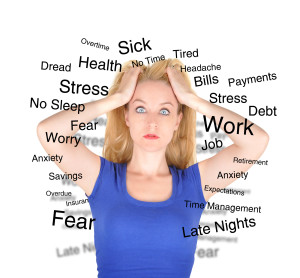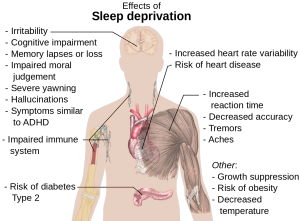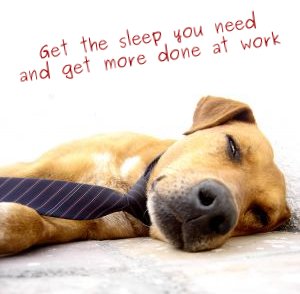How many of us are sleep deprived? I know I often find myself as one who misses a healthy amount of shut-eye. According to David Rapoport, MD, Director of the Sleep Medicine Program at NYU, 40-50% of us don’t get enough sleep. “Sleep problems are increasingly being recognized as a prevalent health issue, raising the risk for everything from cardiovascular disease and diabetes to depression and obesity.” (To Sleep Perchance to Gleam, Abbie Kozolchyk, Whole Living Magazine; October, 2011)
Why is it that we seem to deprive ourselves of this miracle that keeps us healthy, happy, and functioning at our peaks? I know, if we stop for a few minutes, we can see that our lifestyles are a huge issue. Many of us operate on a 24/7 schedule. We have developed bad habits that affect our ability to get into the place that will allow us to sleep. Think about it… We often go to bed with our laptops or smartphones, always feeling the need to be connected. Maybe it’s going to bed and finding ourselves watching TV while thinking it is helping us relax, but instead, stimulating us in a way that prevents beneficial sleep. According to the Better Sleep Council, 65% of Americans report stress is the biggest culprit of a loss of sleep. This, in itself, creates a vicious cycle where the stress that won’t let you sleep, causes more stress.
There are ways to improve your sleep, but it does take commitment and an understanding of what quality sleep really means. Most adults require about seven and a half hours of sleep a night, but we usually get, on average, an hour less.
The following is what should happen when we are sleeping. There are 5 sleep cycles that we should all experience each 90 minutes of sleep. The first 30 minutes of each cycle is more physically restorative, and during the last 30 minutes, you get the mental benefits of quality sleep. Stage 1: The lightest of the sleep stages where your body slows down. If you are awakened from this stage, you may think you’ve been awake the entire time. Stage 2: This stage makes up about half of your sleep. This is the time that the sensation of falling and waking up suddenly will occur. This can also be a stage when you are easily awakened. The remaining stages, 3-5 make up the deepest part of your sleep. In stages 3-4 this is the delta sleep. This is when further relaxation occurs, allowing healing, repair and tissue regeneration to occur. Stage 5 is REM (rapid eye movement) sleep; this stage is when you dream the most vividly. This is the time that allows your body to restore your nervous system and store memories.
So, what can we do to help us get a good night’s sleep? As I said before, COMMIT to making it a priority. The benefits you gain, both short and long-term, will change your life for the better. According to integrative physicians, Andrew Weil, MD and Joe Mercola, DO, there are changes we can make that will help:
- Get plenty of physical activity during the day. Studies show that active people sleep better than sedentary. Whenever possible, exercise outdoors. The benefits of bright, natural light increase vitamin D production and aid in restful sleep.
- Commit to a set bedtime. Traditionally, humans would go to bed shortly after sundown and awake with the sun. Although, this is impossible for most of us, do find a time that works for you and allows your circadian rhythms to function effectively and give you the time to get the eight hours you need.
- Use your bed only for sleep and sex. Avoid those activities that only stimulate your mind and prevent you from falling asleep. No TV, smartphones or computers!
- Avoid EMF (electro-magnetic fields) near your bed. These things can reduce the levels of melatonin and serotonin which help induce sleep. If they must be in the room, keep them away from the bed, at least three feet is recommended, and cover the lights. I have found that by using a simple cover for the alarm clock and other artificial light sources, I am less often disturbed. The moonlight is more than enough to allow me to walk safely, should I need to get up in the middle of the night, but not cause me to be so awake that I cannot return to a restful sleep.
- Keep the temperature in your bedroom no higher than 70 degrees at night. I keep our bedroom at 64 degrees at night. I grew up this way, and cannot sleep when it’s too warm. The body’s lowest temperature occurs when we sleep. Studies indicate sleeping in a cooler room may help mimic this.
- Avoid large meals, caffeine and alcohol late at night. As part of a healthy social life, food, caffeine and alcohol may play a part. What is more fun than a great meal with friends? But, in moderation… Remember to pay attention to what your body needs. Enjoying these things on an occasional basis is not a bad thing, but doing it more often can reap you a whole list of health problems.
- Sleep aids for those times when nothing else is working. Turn on the TV and you will see ads for the latest sleeping pill. Or, turn on the news, and possibly hear the dangers of these pharmaceutical wonders. This is an area that you should always discuss with your health care provider. There are natural ways to help with insomnia, but all of these methods need to be considered cautiously.
Sleep well and feel well. This is the biggest lesson I have learned from changes I have made in my life. The benefits of anything I have sacrificed to achieve a healthy and restfull sleep have far outweighed any of the things that I thought I would miss. Our bedroom is now a sanctuary from the stresses of the day. There are no obtrusive lights, the stimuli that once was thought of as restful, is gone. It is truly a place to find peace, calm and a restful renewal through sleep.
 I walked into my first yoga class in 1995. I was searching, as so many of us are.
I walked into my first yoga class in 1995. I was searching, as so many of us are.
I had been a registered nurse for many years, caring for the sickest of all patients. I saw that many of the patients I cared for were suffering, not understanding their illnesses and what their bodies needed to be healthy. I wanted to make a difference. I wanted to give them the opportunity to live the life they deserved and wanted.
I continued my yoga studies and ultimately became a teacher. After teaching for several years, I began having setbacks, causing me to take another look at what was happening to me and find ways to heal myself.
I looked long and hard at my own lifestyle, how I ate and lived, and learned that although I was reasonably healthy, I wasn’t always giving my body what it needed. I began to understand that my body would tell me-the signals were there.
I ultimately completed my degree in holistic nutrition and received certification in health coaching. My hope was to help others with what I had gained from the work I had done personally. I founded Total-You, and look forward each day to guiding people to be the best they can and realize the potential we all have.


